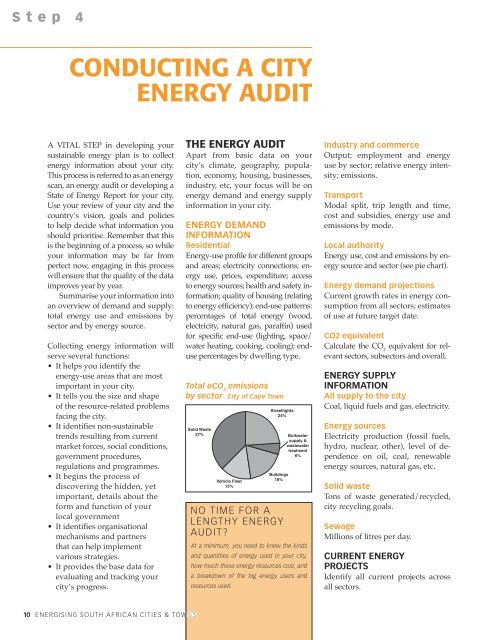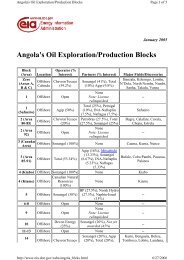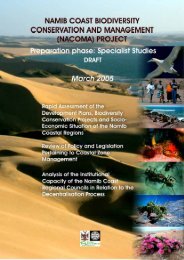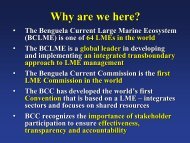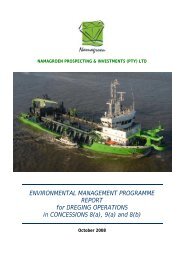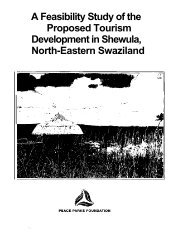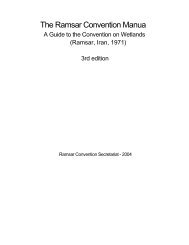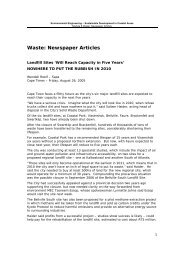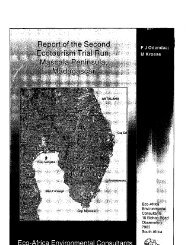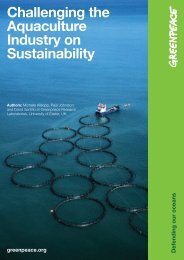Energising South African Cities & Towns - City Energy Support Unit
Energising South African Cities & Towns - City Energy Support Unit
Energising South African Cities & Towns - City Energy Support Unit
You also want an ePaper? Increase the reach of your titles
YUMPU automatically turns print PDFs into web optimized ePapers that Google loves.
S t e p 4CONDUCTING A CITYENERGY AUDITA VITAL STEP in developing yoursustainable energy plan is to collectenergy information about your city.This process is referred to as an energyscan, an energy audit or developing aState of <strong>Energy</strong> Report for your city.Use your review of your city and thecountry’s vision, goals and policiesto help decide what information youshould prioritise. Remember that thisis the beginning of a process, so whileyour information may be far fromperfect now, engaging in this processwill ensure that the quality of the dataimproves year by year.Summarise your information intoan overview of demand and supply:total energy use and emissions bysector and by energy source.Collecting energy information willserve several functions:• It helps you identify theenergy-use areas that are mostimportant in your city.• It tells you the size and shapeof the resource-related problemsfacing the city.• It identifies non-sustainabletrends resulting from currentmarket forces, social conditions,government procedures,regulations and programmes.• It begins the process ofdiscovering the hidden, yetimportant, details about theform and function of yourlocal government• It identifies organisationalmechanisms and partnersthat can help implementvarious strategies.• It provides the base data forevaluating and tracking yourcity’s progress.THE ENERGY AUDITApart from basic data on yourcity’s climate, geography, population,economy, housing, businesses,industry, etc, your focus will be onenergy demand and energy supplyinformation in your city.ENERGY DEMANDINFORMATIONResidential<strong>Energy</strong>-use profile for different groupsand areas; electricity connections; energyuse, prices, expenditure; accessto energy sources; health and safety information;quality of housing (relatingto energy efficiency); end-use patterns:percentages of total energy (wood,electricity, natural gas, paraffin) usedfor specific end-use (lighting, space/water heating, cooking, cooling); endusepercentages by dwelling type.Total eCO 2emissionsby sector <strong>City</strong> of Cape TownSolid Waste37%Vehicle Fleet15%Streetlights24%Buildings18%NO TIME FOR ALENGTHY ENERGYAUDIT?Bulkwatersupply &wastewatertreatment6%At a minimum, you need to know the kindsand quantities of energy used in your city,how much these energy resources cost, anda breakdown of the big energy users andresources used.Industry and commerceOutput; employment and energyuse by sector; relative energy intensity;emissions.TransportModal split, trip length and time,cost and subsidies, energy use andemissions by mode.Local authority<strong>Energy</strong> use, cost and emissions by energysource and sector (see pie chart).<strong>Energy</strong> demand projectionsCurrent growth rates in energy consumptionfrom all sectors; estimatesof use at future target date.CO2 equivalentCalculate the CO 2equivalent for relevantsectors, subsectors and overall.ENERGY SUPPLYINFORMATIONAll supply to the cityCoal, liquid fuels and gas, electricity.<strong>Energy</strong> sourcesElectricity production (fossil fuels,hydro, nuclear, other), level of dependenceon oil, coal, renewableenergy sources, natural gas, etc.Solid wasteTons of waste generated/recycled,city recycling goals.SewageMillions of litres per day.CURRENT ENERGYPROJECTSIdentify all current projects acrossall sectors.10 ENERGISING SOUTH AFRICAN CITIES & TOWNS


